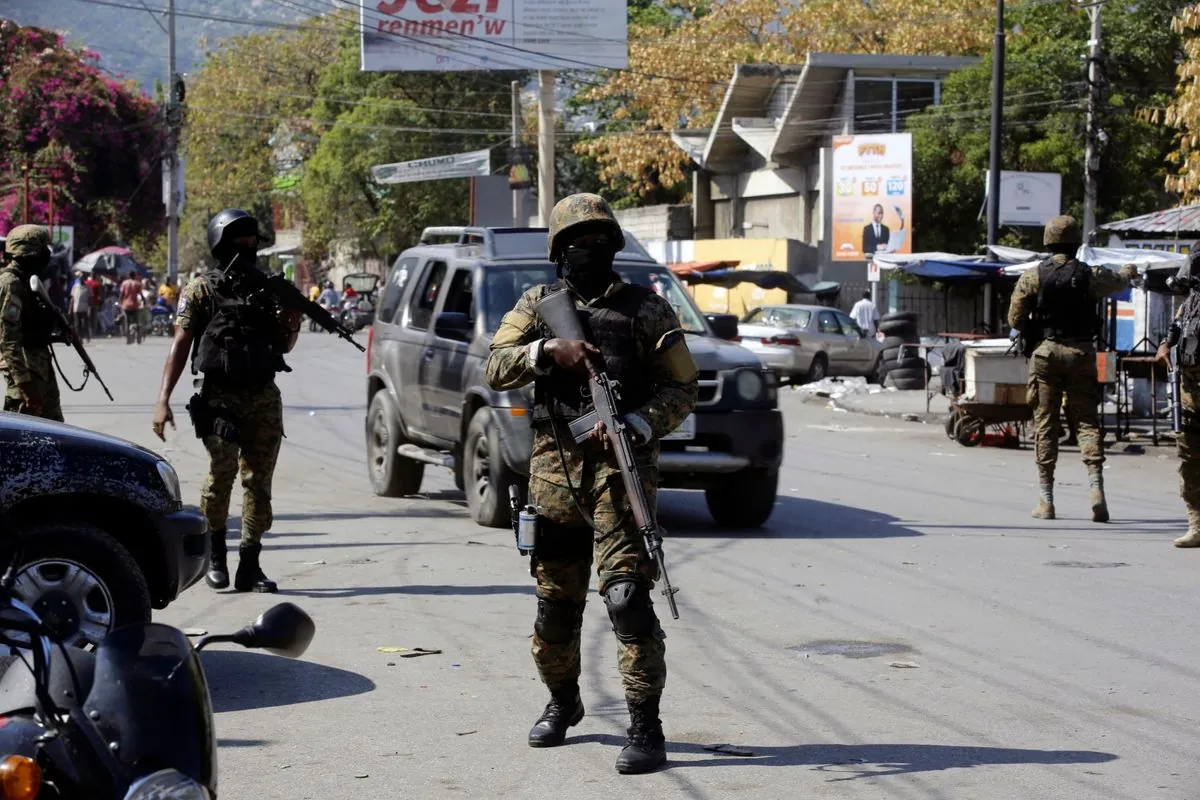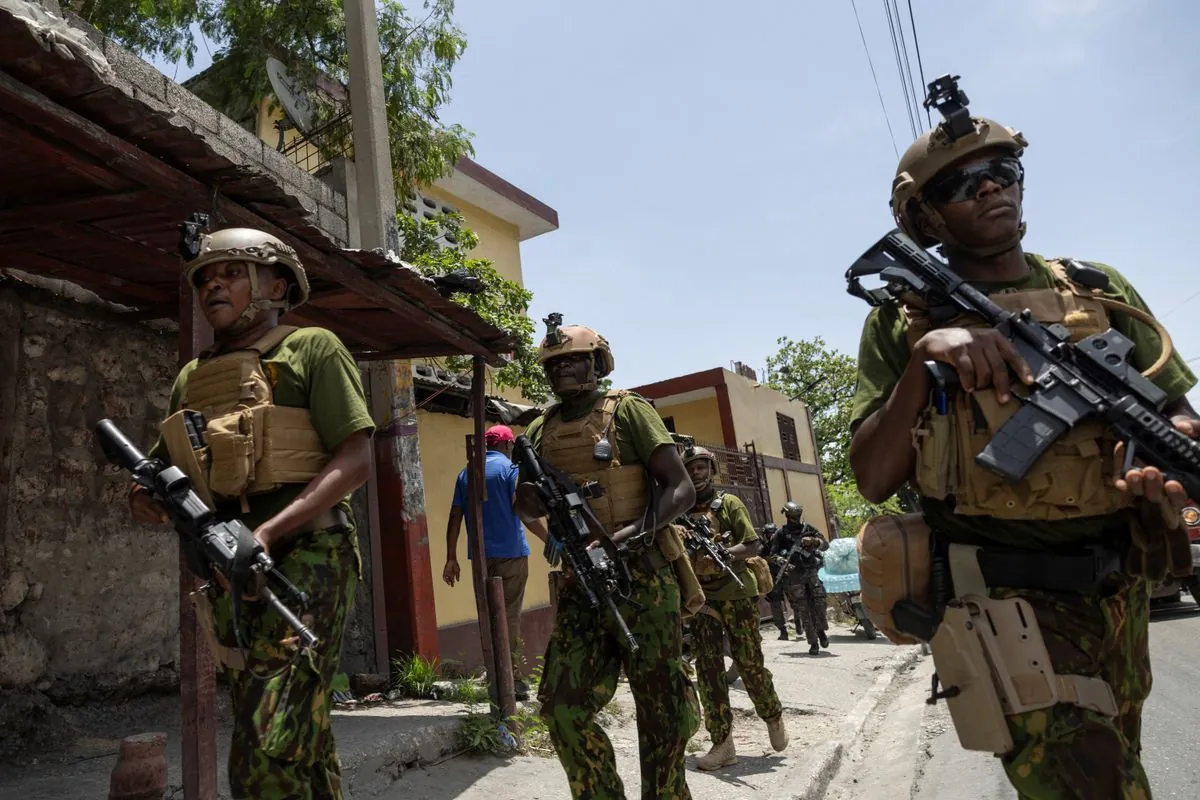Haiti Extends Nationwide Emergency Amid Escalating Gang Violence
Haiti expands state of emergency nationwide as gang violence spreads beyond the capital. Prime Minister distributes weapons to security forces as U.S. Secretary of State plans visit amid ongoing crisis.

Haiti has extended its state of emergency to encompass the entire nation, as announced by a spokesperson for Prime Minister Garry Conille on September 4, 2024. This decision comes in response to the escalating gang violence that has engulfed much of the capital, Port-au-Prince, and begun to spread into neighboring regions.
The expansion of the emergency measures follows a series of earlier declarations. On March 3, 2024, the populous Ouest department, which includes Port-au-Prince, was placed under a state of emergency by Conille's predecessor, Ariel Henry. This initial declaration was prompted by a dramatic surge in violence that paralyzed the capital and led to the escape of thousands of inmates during two prison breaks.
As the situation deteriorated, the emergency status was repeatedly renewed and extended to other departments. The Artibonite region, known for its agricultural importance but now suffering from severe violence, was included, along with the Centre department and Nippes on the southern peninsula.

Conille reported that he had assisted in distributing materials and weapons to the Haitian army and national police to aid in reclaiming territories seized by gangs. This move underscores the government's efforts to combat the widespread insecurity plaguing the nation.
The announcement of the nationwide emergency comes on the eve of a planned visit by U.S. Secretary of State Antony Blinken. The United States is the primary funder of a United Nations-backed security mission, which was requested by Henry in 2022 to help combat gang activity and regain control of gang-held areas.
In June and July 2024, the first contingent of 400 Kenyan police officers arrived in Haiti as part of this international effort. Several other countries have pledged to contribute at least 2,500 additional troops, though these reinforcements have yet to arrive. The mission's mandate is set to expire on October 1, 2024, adding urgency to the current situation.
The ongoing crisis has had devastating humanitarian consequences. Nearly 580,000 people have been internally displaced due to the conflict, while hundreds of thousands have been deported back to Haiti. Additionally, close to 5 million individuals are facing severe hunger, exacerbating the already dire circumstances in the country.
"The situation in Haiti is a complex humanitarian emergency that requires immediate and sustained international support. The widespread violence, displacement, and food insecurity are pushing the country to the brink of collapse."
Haiti's current predicament is set against a backdrop of long-standing challenges. As the first independent black republic, gaining independence from France in 1804, Haiti has a rich history but has faced numerous obstacles. The country occupies the western third of the island of Hispaniola, which it shares with the Dominican Republic, and has a population of about 11.4 million people as of 2024.
Economically, Haiti remains the poorest country in the Western Hemisphere, with a GDP per capita of around $1,200. The nation has endured political instability, experiencing over 30 coups since its independence. Natural disasters have also taken their toll, with a devastating 7.0 magnitude earthquake in 2010 claiming over 200,000 lives.
Despite these challenges, Haiti boasts a vibrant cultural heritage, including unique art, music, and voodoo traditions. The country's official languages are Haitian Creole and French, reflecting its complex colonial history. However, with a literacy rate of about 61%, one of the lowest in the Caribbean, education remains a critical issue.
As Haiti grapples with its current crisis, the international community watches closely, hoping for a resolution that can bring stability and prosperity to this resilient nation.


































